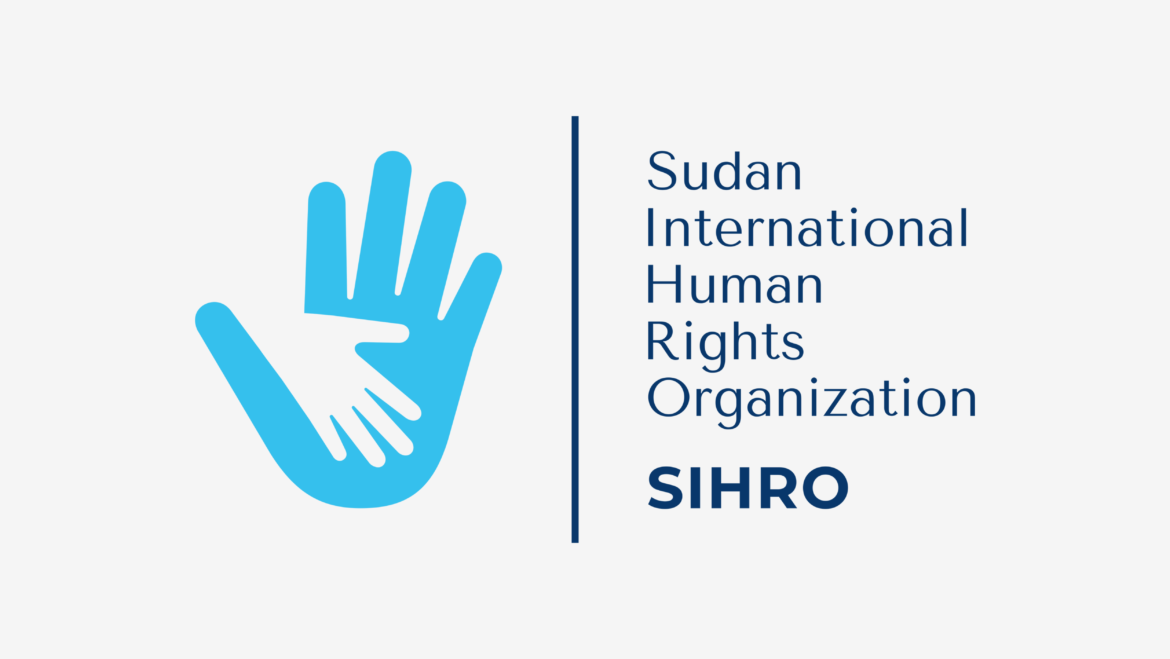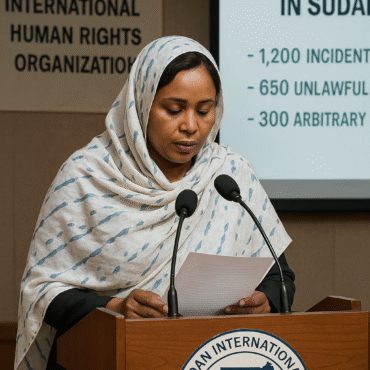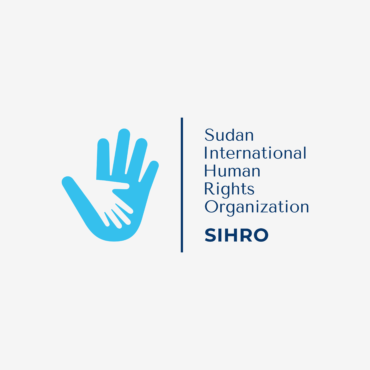Unraveling the Crisis in Sudan: A Detailed Conflict Analysis and Humanitarian Overview
Sudan International Human Rights Organization (SIHRO)
March 2024
Introduction
The Sudan International Human Rights Organization (SIHRO) presents this conflict analysis report to shed light on the escalating violence and the deteriorating humanitarian situation in Sudan. Drawing upon data from the Armed Conflict Location & Event Data Project (ACLED) and integrating findings from the United Nations Security Council (UNSC) and other leading agencies, this report offers a comprehensive overview of the conflict dynamics, the humanitarian impact, and the violations of international human rights and humanitarian laws in Sudan from February to March 2024.
Conflict Dynamics
Since April 2023, Sudan has been engulfed in a violent conflict between the Sudanese Armed Forces (SAF) and the Rapid Support Forces (RSF), marking a significant escalation in political violence and resulting in substantial civilian casualties and displacement. According to ACLED, from February 10 to March 8, 2024, over 350 political violence events were recorded, with 782 reported fatalities, underscoring the intensification of hostilities.
The conflict has seen a strategic shift, with the SAF adopting offensive tactics to reclaim control in Khartoum, leading to significant territorial gains and altering the dynamics of the conflict. Concurrently, the RSF has executed targeted attacks on civilians in the states of al-Jazirah and South Kordofan, exacerbating the humanitarian crisis.
Humanitarian Impact
The humanitarian situation in Sudan has rapidly deteriorated, with millions affected by the conflict. The closure of medical facilities, disruption of water supplies, and widespread food insecurity have placed immense strain on the civilian population, particularly pregnant women, children, and the displaced. The UN Security Council, in its reports, has highlighted the dire need for humanitarian assistance and the critical challenges faced in delivering aid amidst the conflict.
Violations of International Laws
The targeted attacks on civilians by the RSF, as documented by ACLED and corroborated by firsthand accounts, raise serious concerns over violations of international human rights and humanitarian laws. The use of violence against non-combatant populations and the deliberate targeting of ethnic communities, as seen in South Kordofan with the Nuba people, point to potential war crimes and crimes against humanity.
Analysis of Conflict Drivers and Consequences
The conflict in Sudan is characterized by multiple layers of complexity. It involves a power struggle between the SAF and RSF, ethnic tensions, and the involvement of rebel groups such as the Sudan People’s Liberation Movement-North (SPLM-N) led by Abdelaziz al-Hilu. The strategic objectives behind the SAF and RSF’s military campaigns, the role of external support, and the impact of ethnic affiliations are critical factors fueling the conflict.
The consequences of the conflict are profound, affecting not only the political landscape but also the social fabric of Sudan. The displacement of communities, the loss of lives, and the destruction of infrastructure have long-term implications for Sudan’s development and stability.
Recommendations
- Immediate Ceasefire: SIHRO calls for an immediate ceasefire by all parties involved in the conflict, facilitated by international mediation efforts led by the United Nations and the African Union.
- Humanitarian Access: Urgent action is needed to ensure safe, rapid, and unhindered access to humanitarian aid in all affected areas, with particular attention to vulnerable populations.
- Accountability: SIHRO advocates for the establishment of an independent international inquiry to investigate alleged violations of international human rights and humanitarian laws and hold perpetrators accountable.
- Peaceful Resolution: SIHRO supports inclusive dialogue and negotiations involving all stakeholders, including civil society and marginalized communities, to address the root causes of the conflict and work towards a sustainable peace agreement.
- International Solidarity: SIHRO urges the international community, including the UN Security Council, to prioritize the crisis in Sudan, providing the necessary diplomatic and financial support to facilitate conflict resolution and humanitarian assistance.
Conclusion
The escalating conflict in Sudan demands immediate attention and action from the international community to prevent further loss of life and to address the growing humanitarian crisis. SIHRO remains committed to advocating for the rights and dignity of all individuals affected by the conflict in Sudan, emphasizing the need for a peaceful, just, and inclusive resolution.




Add Comment